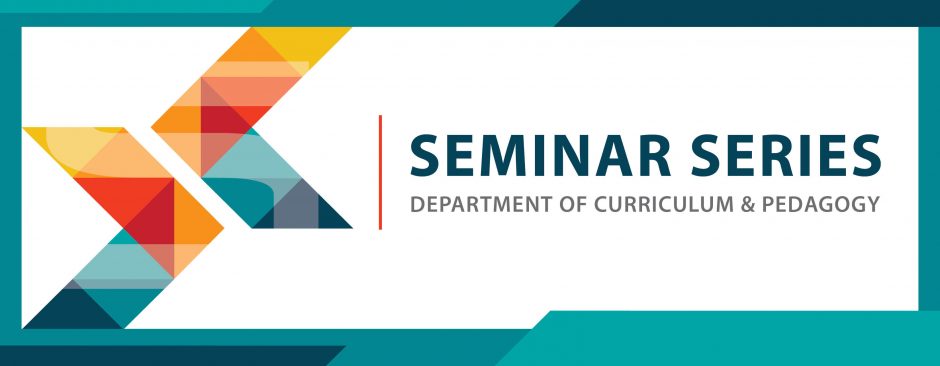
Dr. Peter Seixas | Professor, EDCP
Friday, February 26th, 2016 | 12:30-2:00 p.m. | Scarfe Room 310
View the Seminar Poster
Abstract
Yes, yes, the past gets in the way; it trips us up, bogs us down; it complicates, makes difficult. But to ignore this is folly, because, above all, what history teaches us is to avoid illusion and make-believe, to lay aside dreams, moonshine, cure-alls, wonder-workings, pie-in-the-sky—to be realistic.
–Tom Crick, the history teacher, in Graham Swift’s Waterland, p. 108
In his EDCP Seminar on January 15, Dr. Wayne Ross challenged commonplace notions of schools, teacher education, the subject of social studies, democracy and freedom. In this talk, I review the arguments and confront them as a colleague—in the department, in social studies education, and in the project of educating teachers for British Columbia schools. As the basis of my critique, I offer a theoretical framework through the concept of “historical agency,” which calls attention to the abilities of people to act individually and collectively to shape the course of history, as well as the limitations on those abilities. It offers a way to steer a course between the two closely related traps of hopelessness and utopianism. I sketch its utility specifically in relation to 1) understanding our own social and political situation, 2) thinking about the role of schools and teachers in democratic societies, 3) developing useful curriculum and pedagogy in Canada today, 4) educating student teachers in the Faculty of Education, and 5) conducting educational research that matters.
Short Bio
Peter Seixas (PhD, History, UCLA) is Professor in the Department of Curriculum and Pedagogy. His edited collections include New Directions in Assessing Historical Thinking (2015) with Kadriye Ercikan, Theorizing Historical Consciousness (2004), and Knowing, Teaching and Learning History: National and International Perspectives (2000) with Peter Stearns and Sam Wineburg. He is also a co-author of The Big Six Historical Thinking Concepts (2013) and Canadians and Their Pasts (2013). His contributions have been recognized with (among others) the Canada Research Chair in Historical Consciousness (2001-2014), a fellowship in the Royal Society of Canada, the American Studies Association’s Constance Rourke Award, the American Historical Association’s William Gilbert Award, the Innovation Award of the BC Social Studies Teachers’ Association, the National Leadership Award of the Ontario History and Social Science Teachers’ Association, UBC’s Killam Faculty Teaching Prize and the 2015 Grambs Distinguished Research Career Award from the National Council for Social Studies (USA). He was the founding director of the Historical Thinking Project (2006-2014), which has had significant impact on provincial history curricula across Canada, most recently recognized in the Historica Foundation’s “Canadian History Report Card.”